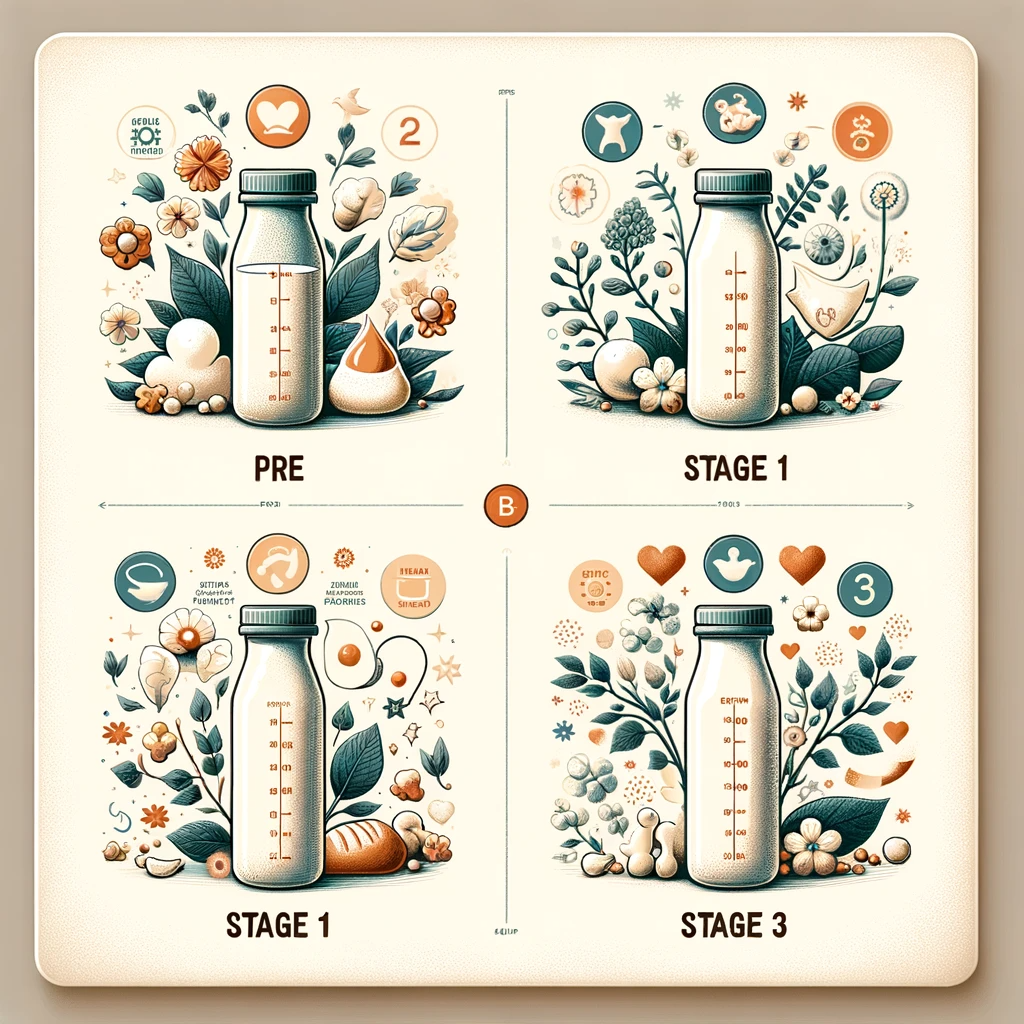Your Cart is Empty
FAST AND FREE SHIPPING ON MULTI-PACKS

European baby formulas have grown in popularity of late. The use of biodynamic organic farming principles has led many to try them. The clean production and higher standards for formulas in Europe have piqued the interest of many parents hoping for a healthier choice.
As you explore the great options from brands like Holle and HiPP, you might notice some differences in labeling (aside from the language).
In the United States, formulas are typically grouped by age range. German formulas are arranged in stages. Each stage represents a nutritional phase in a child’s development. These stages can be aligned with ages, as well. For instance, HiPP stage 1 is suited for babies in the 0 to 6-month age range.
Each stage is designed to meet the specific dietary needs as your baby develops and grows. A one-month-old certainly has different needs than those of a 9-month old. By balancing carbohydrates, proteins, fats, and vitamins appropriately, babies are fueled for the current stage in their development.
While each brand is a little different, we can find some commonality in their definitions of each stage. Let’s examine the common stages and discuss which stage is right for whom.
PRE Stage
Not every brand features this stage but Holle and HiPP both feature a PRE stage. These formulas are considered the gentlest of them all. It is often used to supplement breastfeeding for a newborn or to provide sustenance for babies who cannot breastfeed in the first months of life.
Holle and HiPP PRE stages are typically recommended for babies up to three months of age.
Neither HiPP PRE nor Holle PRE contains starches, as some of the later stages do. This helps to ease digestion. Newborns do not require the caloric intake of older babies.
A few key differences between HiPP PRE Combiotik and Holle PRE are as follows:
Stage 1
Stage 1 is the typical newborn to six months formula. Some parents find that it is a general enough option to provide babies up to one-year-old. The composition of stage 1 formulas is often designed to be gentle, mimicking breast milk as closely as possible.
Some stage 1 formulas eliminate starches, which can be helpful to babies who have issues with digestion or stomach sensitivity. Some babies in this age range may require more calories so it is important to note the ingredient list and find a stage 1 with starches in this case.
A few key differences between HiPP Stage 1 Combiotik and Holle Stage are as follows:
Stage 2
Stage 2 formulas are for ages over six months. Some parents opt to keep their child on stage 1, as it covers the dietary needs of children up to one year. However, some may find that their baby requires more to satiate their hunger.
This stage continues to offer the appropriate nutrients for children who are not yet consuming many solid foods. If you find that stage 1 formula leaves your baby waking up hungry, it may be time to move to stage 2.
Iron is commonly prevalent in this stage as it encourages healthy blood supply development, which is important at six months and beyond.
A few key differences between HiPP Stage 2 Combiotik and Holle Stage 2 are as follows:
Stage 3
This stage is intended for children older than ten months. Parents often move to this stage once their baby seems hungry after normal stage 2 feedings.
Maltodextrin and starches are available at this stage to promote higher calorie intake for growth and energy. Parents can stick with stage 3 formulas for as long as they want to supplement solid foods.
A few key differences between HiPP Stage 3 Combiotik and Holle Stage 3 are as follows:
Stage 4
Stage 4 formulas are designed for one-year-old or older. These children are typically getting a majority of nutrition from solid foods. This stage is intended as a supplement to solid foods like other milk for toddlers.
Specialty Milks
Some brands offer specialty formulas for specific scenarios. HiPP offers various specialty offerings like its Hypoallergenic line, which is formulated to meet the needs of children who are at risk of allergies.
Another HiPP line called Kindermilch (for one and two-year-old children) features added vitamin D and calcium to promote bone growth and added prebiotics and probiotics to continue building gut health.
German Formulas for Every Stage
As we have seen, there is a formula available for each stage of infancy into toddlerhood. German formulas provide a healthy, often organic, and chemical free option for parents concerned with feeding their babies clean nutrition.
Regardless of your baby’s age or dietary needs, there is a German formula that is perfect for your little one.